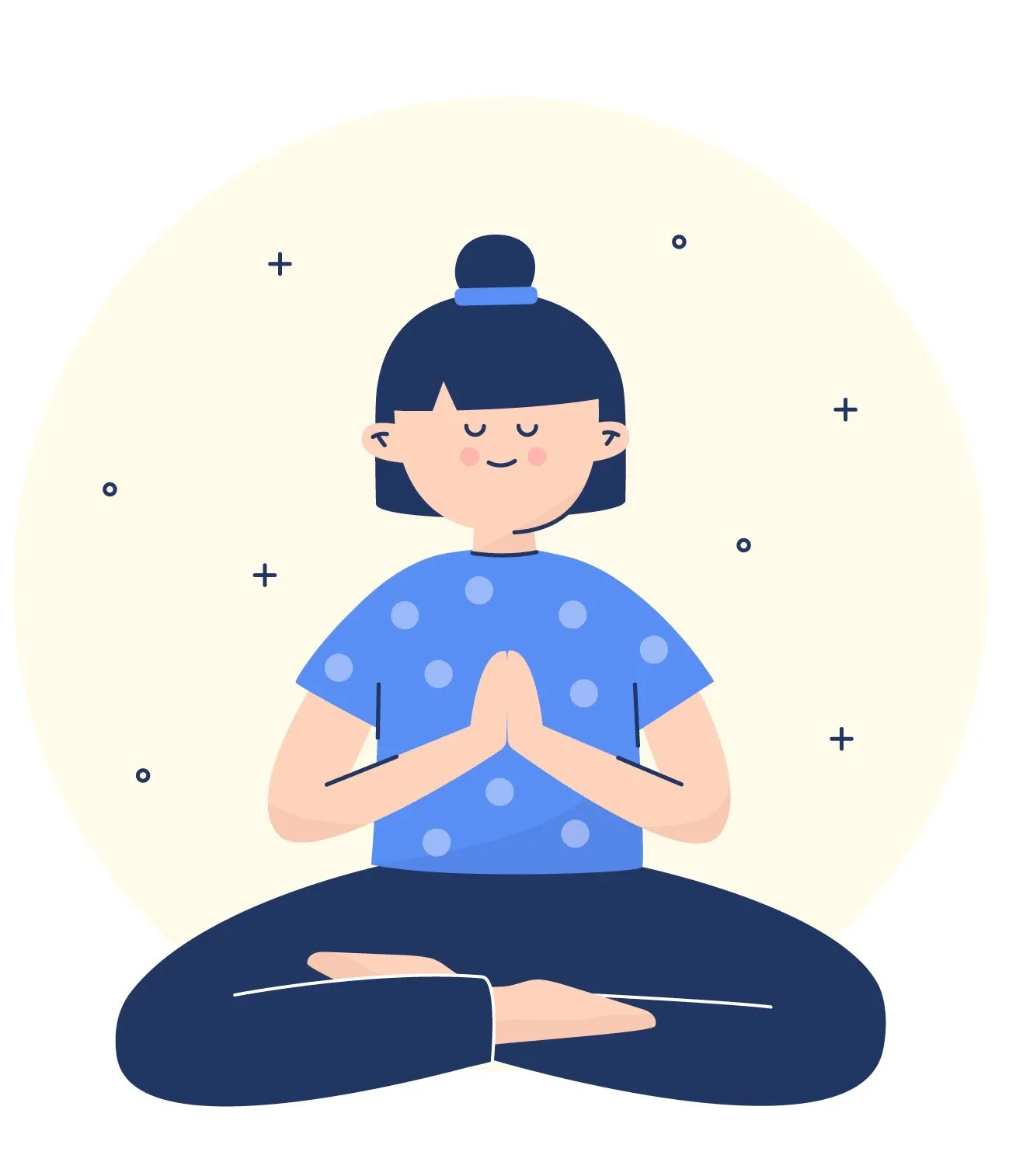BREATHE EASY – Yoga’s effect on health-related quality of life in adults with post COVID-19 condition
The research study Breathe Easy aims at investigating yoga’s effect on health-related quality of life with those who live with long lasting symptoms after a COVID-19 infection (post COVID-19 condition, also known as post COVID or long COVID).

Background
Post COVID-19 condition, also known as post COVID or long COVID, is a significant global public health issue estimated to affect over 65 million people. Common symptoms include fatigue, dyspnea, and cognitive dysfunction (‘brain fog’). Over time, these symptoms have an adverse detrimental effect on mental health, physical activity, and overall quality of life. Given the absence of coherent treatment options, there is a pressing need for innovative and feasible approaches that are effective and self-manageable.
Physical activity is well established to promote good health and well-being, contributing to improved mood states, improved cognition, decreased pain, better sleep quality and energy levels. It also reduces the risk of comorbidities such as cardiovascular diseases, cancer, chronic conditions, and diabetes. The symptoms of post COVID often hinder, or may be worsened by, conventional physical activity (e.g., running or weightlifting). Yoga, an exercise form originating from India with a holistic outlook on health and well-being, may be a potential option. Regular practice of yoga may lead to improved balance, core strength, mobility and improved cognition, sleep, and life quality overall. It has shown positive effects on many of the symptoms common with post COVID (e.g., fatigue, dyspnea, cognitive abilities, and sleep quality), and has to date not yet been explored fully in the context of health-related quality of life and post COVID.
Research
The primary research question of the Breathe Easy study is:
- What are the effects of a 12-week long yoga-based intervention on health-related quality of life with adults (30-65) with post COVID, compared to health-related promotion information?
Additionally, the study investigates yoga’s effect on dyspnea, physical and mental fatigue, cognitive abilities, sleep quality, depression, anxiety, and physical activity levels. This randomized controlled trial includes two groups:
Yoga: The yoga group will practice yoga in a centrally located yoga studio in Stockholm, ≥ 3 times per week for 12 weeks. The yoga classes are from a program specifically designed for post-COVID patients by experts in yoga and post COVID.
Health Promotion: The health promotion group (waitlist) will continue their usual lifestyle for 12 weeks, receiving fortnightly e-mails with health-related information and tips. The information is not related to yoga, mindfulness, meditation, or such, to avoid group contamination. After 12 weeks, this group will gain access to practice yoga.
Both groups will receive these interventions as complementary to ongoing treatment prescribed by their physicians.

Ethics and Dissemination
The trial is approved by the Swedish Ethical Review Authority (Etikprövningsmyndigheten). The findings of the study will be published in leading scientific journals and presented at conferences and seminars to key stakeholders. A summary of key results will be published for the general population through newspaper articles, press releases, and media channels.
Funding
The project is funded by FORTE (the Swedish Research Council for Health, Working Life and Welfare). The funding body is not involved in the design and/or conduct of the study.
Setting and Contact
The study is conducted at the institution for Global Public Health at Karolinska Institutet in Stockholm.
To read more, or to register for participation, please visit https://ki.se/gph/forskning/breathe-easy-en-studie-om-halsorelaterad-livskvalitet-hos-vuxna-med-post-covid
For questions regarding the trial or participation, please contact us through contact details listed below:
